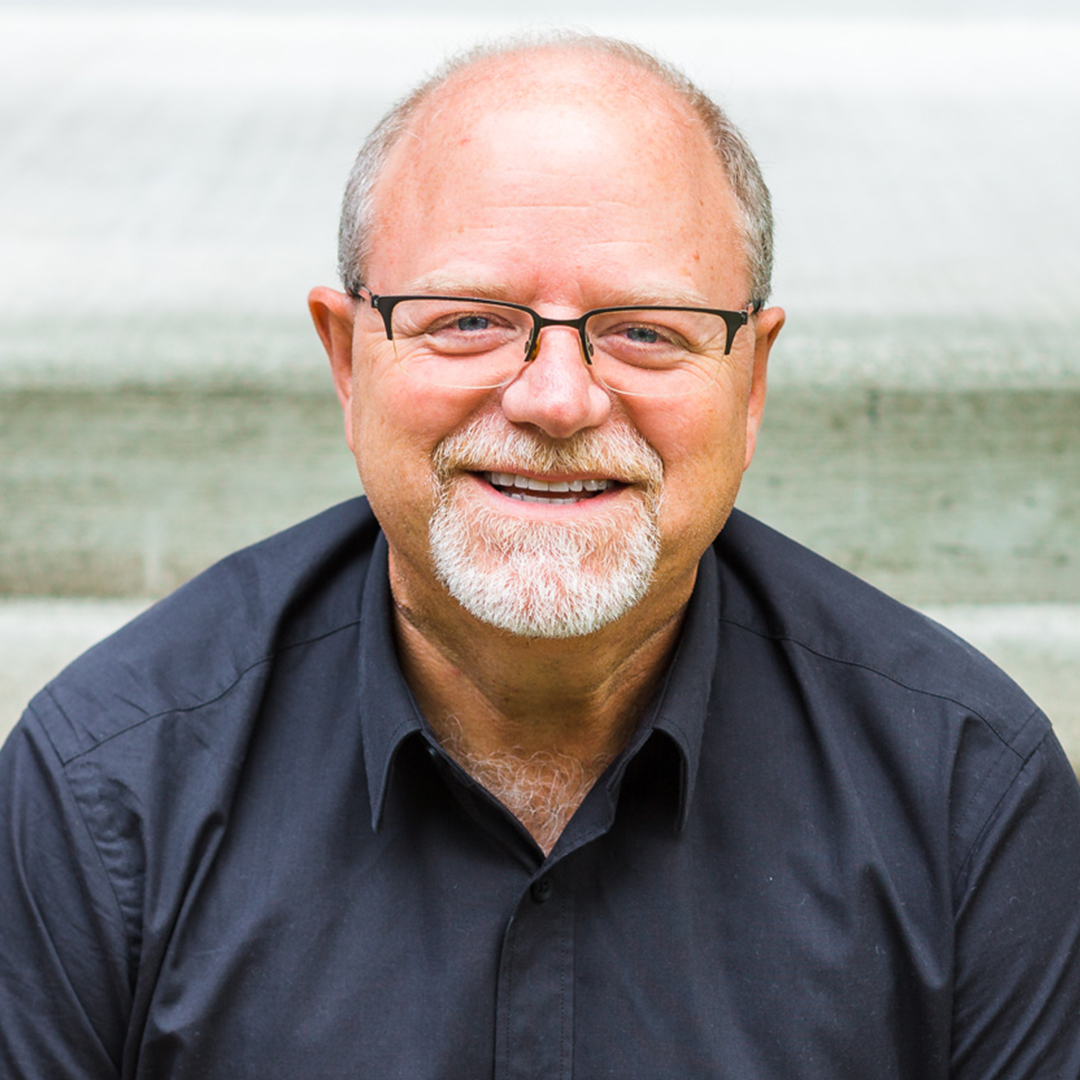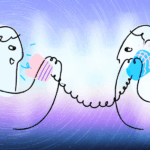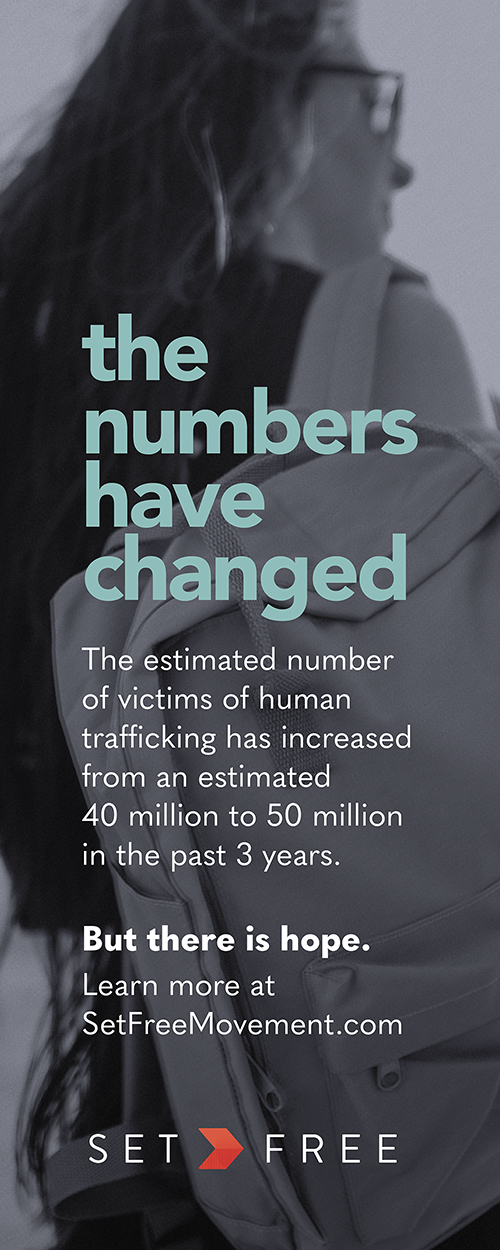
Bishop Keith Cowart
Bishop Keith Cowart, D.Min., oversees Free Methodist ministries along the Eastern Seaboard, in the South Central United States, and also in Europe and the Middle East. He was elected a bishop of the Free Methodist Church USA at General Conference 2019. He previously served as the Southeast Region superintendent after 21 years as the founding lead pastor of Christ Community Church in Columbus, Georgia.
By Bishop Keith Cowart
In the introduction to The Free Methodist Way, we find these words:
“In a time of rising polarization in our nation, we resist the pull toward both fundamentalism and liberalism not out of a spirit of compromise, but from a radical commitment to what Wesley called ‘the middle path.’ It is a path that takes the whole gospel seriously and continually calls us to ‘both/and’ convictions in an ‘either/or’ world. We call it The Free Methodist Way.”
One of the realities we must face in today’s world is that we are living in a time when agreement over the meaning of words and phrases cannot be taken for granted. Consider, for example, the meaning of the word “love.” It is a concept that is central to the Christian life, but what does it mean in practical terms? That one might assume it means “to give unconditional positive regard” while another believes it means “to devote oneself to a person’s highest good” explains how two people can be talking about the same concept with completely different understandings of what it means.
When we (bishops) wrote The Free Methodist Way, we did so with a specific understanding of the phrase, “the middle path” (from the Latin, via media), one that is rooted in John Wesley’s understanding of it and our own sense of its significance for today’s church. As we approach General Conference and the prospect of considering several resolutions that might benefit from a “middle path” approach, we want to clarify what we understand this phrase to mean.
We should first consider how Wesley, himself, understood it. He did not coin the phrase but inherited it from the Church of England, which viewed itself as “the middle path” between Catholicism and Protestantism (particularly the more extreme Puritan version of it).[1] But Wesley also made use of a “middle path” approach to theology by holding together biblical truths that may at first appear to be incongruent. Howard Snyder highlights three of the most significant areas where Wesley adopted this approach[2]:
“Wesley held together the eschatological hope and ‘the wrath to come.’ He was optimistic about the possibilities of grace and emphatic that God would create a new heaven and a new earth. But this emphasis had to be combined with the warning of judgment and eternal punishment.”
“Wesley also held together the evangelistic and the prophetic dimensions of the gospel. There was no split between personal salvation and social engagement. … Wesley was first of all an evangelist, because he felt that all must hear and respond to the convicting and converting Word of God. But the new birth must produce faith, hope, and love, or else it is not true conversion.”
“Finally, Wesley held in creative tension the present and future dimensions of salvation. The new birth began a process that reached into eternity. He reasoned that if God could make men and women holy in heaven, he could also make them holy on earth.”
_
“Navigating the ‘middle path’ is rarely a walk in the park, but more of a faith adventure that requires fortitude and unflinching devotion to the whole counsel of God’s Word.”
_
These three examples show how Wesley brilliantly held in tension truths that so often divide Christians and churches into opposing camps. Dale M. Coulter expands on Snyder’s list when he points to Wesley’s understanding of such things as crisis AND process, God’s sovereignty AND human will, and sacramentalism AND revivalism.[3] In our own day, we have urged Free Methodists to be a people devoted to both Word AND Spirit, purity AND power (regarding the work of the Holy Spirit), along with grace AND truth. In my view, this is one of the greatest contributions of Wesleyan theology, one that takes seriously the entire scope of God’s Word, not just the parts to which we are more easily drawn. On the one hand, this approach to theology enables us to find common ground with many who belong to different tribes. On the other hand, it also means we are often criticized from both sides by those who hold to more extreme positions. Thus, navigating the “middle path” is rarely a walk in the park, but more of a faith adventure that requires fortitude and unflinching devotion to the whole counsel of God’s Word.
But in more recent times, a new challenge has arisen. It is not a matter of holding to a “both/and” position over against an “either/or” position, but the resistance to any position that is held to be objectively true. To be clear, while “both/and” may appear to some to be a position of compromise, it is rather a firm position that insists on embracing two truths instead of choosing one over the other. Thus, to those who have been influenced by postmodern thought and its insistence that all truth is relative, “both/and” can be just as problematic as “either/or.” Such persons would suggest a third alternative: “think/let think” or “live/let live.”
Unfortunately, what we have called the “middle path” is sometimes confused with this third alternative. For example, in the United Methodist Church, one of the solutions to the LGBTQ+ debate was a proposal called “The Third Way.” Its proponents argued that the best way forward for the deeply divided denomination was to give every pastor and every church the freedom to determine its own position on human sexuality. At the heart of this proposal was the belief that traditional and progressive positions on this issue are equally valid from a biblical viewpoint and those who championed it frequently pointed to Wesley’s “middle path” for its rationale.
_
“We believe Scripture unequivocally regards all sexual activity outside of marriage between one man and one woman to be sin AND we believe we are called to radically love those who are caught in the grip of such sin.”
_
We want to be clear this is not the position of your bishops or the Free Methodist Church. We believe Scripture unequivocally regards all sexual activity outside of marriage between one man and one woman to be sin[4] AND we believe we are called to radically love those who are caught in the grip of such sin. This is our understanding of the “middle path,” and it is the way of Jesus. He was roundly criticized by the religious elite of His day for being a “friend of sinners” AND He consistently called those to whom He ministered to leave their life of sin.
To be sure, ours is not a popular position in current American culture.[5] The pressure to conform is already intense and will only continue to grow, but Christianity at its best has almost always been countercultural. Our concern, however, is not primarily with those outside of Christianity who disagree with our position[6], but with those who claim to be Christian and yet consider matters of human sexuality to fall in the category of non-essential beliefs. And our deepest concern is with those who believe Wesleyan theology, and especially its emphasis on the “middle path,” lays the foundation for such a notion.
Those in this latter camp often point to Wesley’s commitment to what he called a “catholic spirit” (by catholic, Wesley meant “the universal church”; in today’s language, a “catholic spirit” is essentially the same as a “kingdom spirit”). In his sermon of that title, Wesley famously declares,
“But although a difference in opinions or modes of worship may prevent an entire external union, yet need it prevent our union in affection? Though we can’t think alike, may we not love alike? May we not be of one heart, though we are not of one opinion? Without all doubt we may. Herein all the children of God may unite, notwithstanding these smaller differences. These remaining as they are, they may forward one another in love and in good works.”
Without question, Wesley urged tolerance among believers out of his conviction that matters of opinion should never stand in the way of loving one another. However, a full reading of the sermon reveals that the opinions Wesley had in mind were things like church government and modes of baptism, not doctrine rooted in biblical truth. In fact, he was gravely concerned that some would use his notion of a catholic spirit in ways he never intended, adding, “There is scarce any expression which has been more grossly misunderstood and more dangerously misapplied than this.” He then proceeds to clarify what he does and does not mean by a “catholic spirit,” specifically addressing what he calls “speculative latitudinarianism” (an 18th century way of saying, “live and let live”):
“For, from hence we may learn, first, that a catholic spirit is not speculative latitudinarianism. It is not an indifference to all opinions: this is the spawn of hell, not the offspring of heaven. This unsettledness of thought, this being “driven to and fro, and tossed about with every wind of doctrine,” is a great curse, not a blessing, an irreconcilable enemy, not a friend, to true catholicism. A man of a truly catholic spirit has not now his religion to seek. He is fixed as the sun in his judgement concerning the main branches of Christian doctrine.”
Any notion that Wesley was only devoted to the most essential doctrines of the faith and encouraged great latitude elsewhere is put to rest in his sermon “The Witness of Our Own Spirit”:
“But the Christian rule of right and wrong is the word of God, the writings of the Old and New Testament; all that the Prophets and ‘holy men of old’ wrote ‘as they were moved by the Holy Ghost’; all that Scripture which was given by inspiration of God, and which is indeed profitable for doctrine, or teaching the whole will of God; for reproof of what is contrary thereto; for correction of error; and for instruction, or training us up, in righteousness (2 Timothy 3:16). This is a lantern unto a Christian’s feet, and a light in all his paths. This alone he receives as his rule of right or wrong, of whatever is really good or evil.”
We conclude, then, that while Wesley was quite progressive in his thinking when it came to methodology, he was thoroughly orthodox when it came to theology, and he never strayed from that fundamental conviction as he navigated issues that benefited from a “third path” approach.
So, what does all of this mean for us as Free Methodists in 2023? I’d like to suggest the following:
While some in the broader Wesleyan family have strayed substantially from Wesley’s understanding of the “middle path,” we as Free Methodists must stay the course. The final value of The Free Methodist Way is “God-Given Revelation.” We placed that value last because we view it as foundational for the other four. Whatever we believe about “Life-Giving Holiness,” “Love-Driven Justice,” “Christ-Compelled Multiplication,” and “Cross-Cultural Collaboration” must always be tested by Scripture, consistent with its teaching, and subject to its authority.
_
“The Free Methodist Way calls us to reclaim our heritage and walk boldly in it.”
_
Our commitment to the “middle path” is one of the most valuable gifts we bring to the larger body of Christ. We need to lean into that gift, not shrink back simply because it can lead us to unpopular positions. One of the most obvious examples of the “middle path” in The Free Methodist Way is our devotion to both “Christ-Compelled Multiplication” and “Love-Driven Justice.” Too often these values are bifurcated in the American church even though Scripture speaks consistently to both.[7] On one side are those who believe the church should only be concerned with reaching the lost and making disciples. On the other are those who insist we should be focused on our witness in society by confronting injustice. Most faith families emphasize one over the other, sometimes going so far as to ignore or even reject the other altogether. As Free Methodists, those who blazed the trail of our early movement clearly demonstrated a deep commitment to both. To be sure, we have not always remained true to their path. The Free Methodist Way calls us to reclaim our heritage and walk boldly in it.
We have never needed the “middle path,” as Wesley understood it, more than we do right now. In The Free Methodist Way, we speak of the rising polarization in our nation. Unfortunately, that spirit has infiltrated the American church in disappointing ways. In our own faith family, we have seen a significant rise in “either/or” thinking around matters that are clearly “both/and” from a biblical point of view, particularly when it comes to matters of justice. While James pleads with us to “be quick to listen, slow to speak and slow to become angry” (James 1:19), we too often see this verse turned on its head: we are slow to listen (because we don’t believe we have anything to learn), we are quick to speak (because we only want to show the other side why they’re wrong), and we are quick to become angry (because we love our positions more than we love each other). Such a spirit not only erodes our unity; it destroys our witness to a watching world.
I am convinced the Free Methodist Church can be (perhaps we were always meant to be) a leading voice in reminding the American church what it means to be devoted to the whole gospel. To do so in the 21st century, we must resist the pull toward polarization, fully embrace our Wesleyan heritage and its commitment to the “third path,” and devote ourselves to authentically living out a “both/and” faith in an “either/or” world.
+
[1] Howard Snyder, “Wesley’s Concept of the Church,” Asbury Journal, 1978.
[2] Ibid.
[3] Dale M. Coulter, Firebrand, “The Wesleyan Middle Way,” August 17, 2021.
[4] Paragraph 3215 of the BOD specifically expresses our belief that pre-marital, extra-marital and homosexual intimacy is sin. We are not ignorant of the fact that some contend that the Bible is not clear on these matters, but we find that position to be disingenuous. For almost 2,000 years, the church never wavered on its understanding of Scripture around the practice of homosexuality. The idea that our generation, heavily influenced by philosophies that champion self-expression and sexual freedom while disparaging religion and any notion of submission to external authority (including God), has suddenly discovered a more accurate and faithful reading of Scripture on human sexuality is dubious at best.
[5] In fact, just four years ago, a group of futurists predicted that our position on human sexuality will no longer be found in American churches by 2030. Instead, based on current trends, they believe there will only be churches that fully affirm or have abandoned any attempt to reach the LGBTQ+ community, choosing instead to take an antagonistic position (see Doug Paul and other contributors, “The Futurist Church Series: 10 Predictions for the Next 10 Years”). While they may be reading the tea lives correctly, that should have no bearing on our commitment to a “middle path” of faithfulness to God’s Word AND radical love for those who do not yet know Jesus.
[6] We do not believe being drawn into a culture war is missionally sound. Why would we ever expect to convince people who are not followers of Jesus to embrace His values? Our mission is not first to perpetuate Christian values but to lead people to Jesus and make disciples who are filled with His Spirit. Then they will embrace and bear witness to the values of the kingdom through their very lives.
[7] See Luke 19:10 AND 4:18-19; Matthew 28:18-20 AND Matthew 25:31-46; 2 Corinthians 5:20 AND Amos 5:6-15, 21-24; Matthew 9:37-38 AND Isaiah 1:17.

Bishop Keith Cowart
Bishop Keith Cowart, D.Min., oversees Free Methodist ministries along the Eastern Seaboard, in the South Central United States, and also in Europe and the Middle East. He was elected a bishop of the Free Methodist Church USA at General Conference 2019. He previously served as the Southeast Region superintendent after 21 years as the founding lead pastor of Christ Community Church in Columbus, Georgia.










Trackbacks/Pingbacks